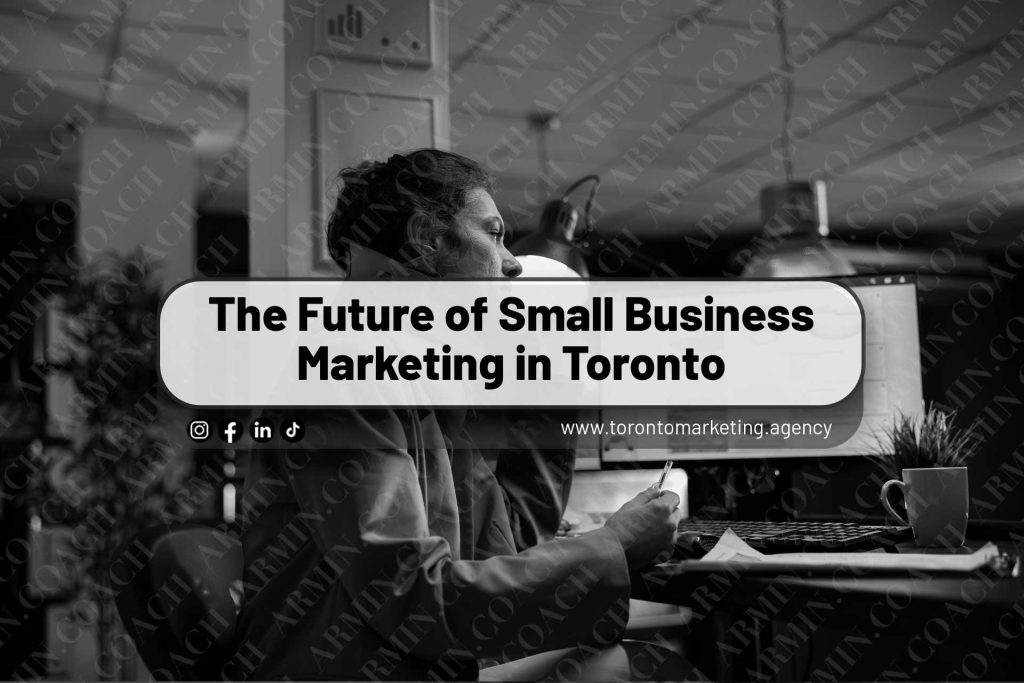Toronto’s Digital Marketing Advantage
Toronto is not only the business capital of Canada but also one of North America’s fastest-growing digital hubs. With its multicultural population, thriving startup ecosystem, and competitive industries, Toronto businesses face unique challenges and opportunities.
To succeed, they need more than generic marketing tactics — they need strategies tailored to Digital Marketing in Toronto, considering local demographics, culture, and competition.
In this ultimate guide, we’ll explore the evolution of digital marketing in Toronto, best practices across SEO, PPC, content, and social media, plus insider tips for staying ahead in this competitive city.
Chapter 1: The Evolution of Digital Marketing in Toronto
1.1 From Traditional to Digital
- Pre-2000: Most Toronto businesses relied on print ads, TV, and radio.
- Early 2000s: With faster internet and mobile adoption, websites became essential.
- 2010–2020: SEO, social media, and PPC dominated.
- 2025 and beyond: AI-driven personalization, voice search, and video-first campaigns are shaping the future.
1.2 Toronto’s Startup Ecosystem
Toronto is home to thousands of startups, especially in fintech, healthtech, and SaaS. These industries rely heavily on digital marketing to acquire leads, scale quickly, and compete globally.
Chapter 2: Key Industries Using Digital Marketing in Toronto
2.1 Restaurants and Hospitality
Restaurants use Instagram ads and influencer marketing to reach Toronto’s foodie audience. Example: A Queen Street pizzeria boosted reservations by 40% after a TikTok campaign went viral.
2.2 Real Estate
Agents and developers depend on Google Ads and SEO. Keywords like “condos for sale Toronto” or “downtown Toronto realtor” are highly competitive.
2.3 Healthcare and Aesthetics
Clinics offering Botox, dental care, or BBL use local SEO and educational blogs to build trust. Reviews are a game-changer in this industry.
2.4 Retail and E-Commerce
Toronto-based fashion and beauty brands thrive on Shopify, combining PPC + social ads to target GTA shoppers.
Chapter 3: SEO in Toronto – Mastering Visibility
3.1 On-Page SEO Best Practices
- Include “Toronto” in titles and meta descriptions.
- Use schema markup for local businesses.
- Write long-form, keyword-rich content tailored to Toronto queries.
3.2 Local SEO
- Optimize Google Business Profile with photos, updates, and Q&A.
- Collect reviews (highly valued in competitive Toronto markets).
- Build citations on Yelp, Yellow Pages, and local directories.
3.3 Tools for SEO in Toronto
- Ahrefs & SEMrush for competitive research.
- BrightLocal for local ranking tracking.
- Google Keyword Planner for local keyword volume.
Chapter 4: Social Media Marketing in Toronto
4.1 Instagram for Lifestyle and Food
- Toronto cafés and restaurants use reels and influencer collabs.
- Hashtags like #TorontoFoodies boost discovery.
4.2 LinkedIn for B2B
Toronto’s Financial District is full of B2B companies leveraging LinkedIn ads and thought-leadership posts.
4.3 TikTok for Younger Audiences
Brands target Gen Z and millennials with Toronto-centric content (e.g., “Day in the Life in Toronto”).
Chapter 5: Content Marketing That Resonates
5.1 Localized Content
Example: “Top 10 Things to Do in Toronto This Summer” blog that promotes a travel agency.
5.2 Video Marketing
YouTube and TikTok dominate, but webinars and live events also perform well in Toronto’s professional circles.
5.3 Event-Based Content
Leverage Toronto events like TIFF, Pride Parade, and CNE to align content with city buzz.
Chapter 6: PPC Advertising in Toronto
6.1 Google Ads
- CPC for law-related searches in Toronto can reach $30+.
- Real estate terms are among the most competitive.
6.2 Facebook & Instagram Ads
- Fashion brands thrive on highly visual campaigns.
- Lookalike audiences work well in the diverse GTA.
6.3 Retargeting
Toronto buyers are cautious; retargeting keeps your brand top-of-mind.
Chapter 7: Email Marketing
7.1 Why Email Still Works
Despite social media growth, email delivers high ROI. Toronto businesses use it for loyalty programs, seasonal promotions, and event announcements.
7.2 Segmentation Examples
- Restaurants: VIP diners list.
- Retail: Subscribers segmented by shopping habits.
- Clinics: Patients segmented by treatments.
Chapter 8: Data-Driven Marketing
8.1 Google Analytics 4
Track Toronto-based traffic, conversions, and multi-channel attribution.
8.2 CRO (Conversion Rate Optimization)
Even small tweaks — like adding local testimonials — can double conversion rates.
8.3 Seasonal Campaigns
Toronto has strong seasonal shifts:
- Winter = indoor entertainment & e-commerce.
- Summer = festivals & tourism.
Chapter 9: Challenges of Digital Marketing in Toronto
- High Competition: Oversaturation makes SEO/PPC expensive.
- Ad Costs: CPC rates in Toronto are among Canada’s highest.
- Cultural Diversity: Requires multilingual campaigns.
Chapter 10: Future of Digital Marketing in Toronto
10.1 Voice Search
Queries like “best coffee shop near CN Tower” are increasing.
10.2 AI and Personalization
Toronto agencies are already using AI for predictive targeting.
10.3 The Metaverse and AR
Retailers are experimenting with virtual shopping experiences.
Chapter 11: Choosing a Digital Marketing Partner in Toronto
What to Look For
- Case studies in Toronto industries.
- Expertise in Digital Marketing in Toronto strategies.
- Transparent reporting.
Agencies vs. Freelancers
- Agencies: Scalability, full service.
- Freelancers: Flexibility, niche skills.
Chapter 12: Toronto Case Studies
- Restaurant: Boosted reservations by 60% with Instagram ads.
- Startup: Grew leads by 45% using PPC + SEO.
- Clinic: Doubled bookings through Google reviews and content marketing.
FAQ: Digital Marketing in Toronto
How much does digital marketing cost in Toronto?
A: SEO packages start at $1,500/month; PPC campaigns can cost $3,000–$10,000 depending on industry.
What industries benefit most?
Restaurants, real estate, healthcare, e-commerce, and tech startups.
How long does SEO take in Toronto?
3–6 months for noticeable results; longer in competitive industries.
Do I need multilingual marketing?
In many cases, yes — Mandarin, Farsi, Hindi, and Portuguese are common in Toronto campaigns.
Conclusion: Winning in Toronto’s Competitive Digital Market
Success in Toronto requires a tailored, data-driven, and culturally aware approach. Businesses that invest in Digital Marketing in Toronto — SEO, content, PPC, social, and email — will gain visibility, earn trust, and build long-term growth.
Toronto is competitive, but with the right strategy, businesses can dominate locally while reaching a global audience.



